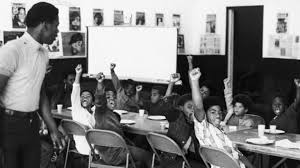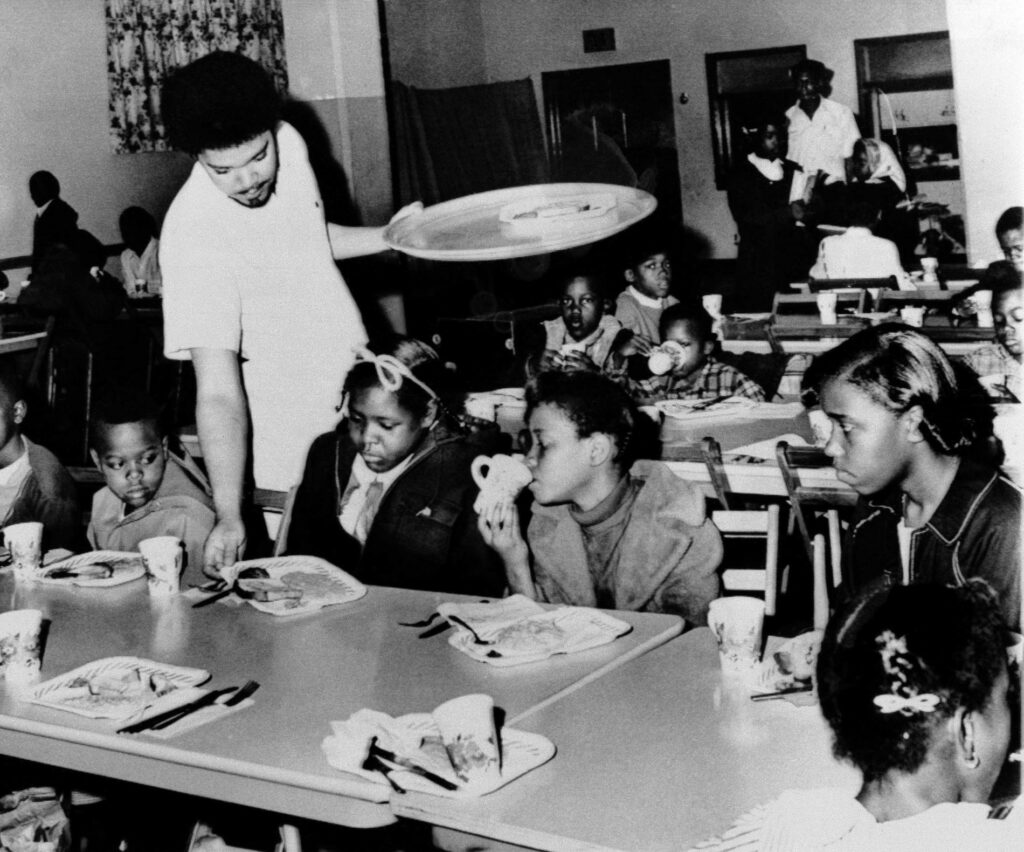Kristian Williams Founding member of Rose City Copwatch, Interviewed by Bill Resnick
Posted June 30, 2020
Bill Resnick: This COVID crisis may well be giving us a glimpse of our future when supply chains collapse under assault from a more serious pandemic coupled with more frequent and damaging climate disasters. Survival will require a tremendous cooperative effort, coordinated to produce and maintain life necessities and make sure everybody had them, this resembling mutual aid on a vast scale. Of course, without cooperative efforts, other outcomes, quite horrific, can also be imagined. So Kristian, tell us about the genesis of mutual aid and its challenge to capitalist understandings of human nature.

Kristian Williams: Well, the term “mutual aid” was coined by the anarchist Peter Kropotkin at the end of the 19th century in a series of articles in the journal The Nineteenth Century, then collected and revised into a book that appeared in 1902.
Kropotkin was one of the most important figures in the history of anarchism. A Russian prince who did a stint in the military, he got himself assigned to Siberia so that he could study the geography of the region. He later became involved with anarchist movement. His efforts to spread anarchist ideas among the workers and peasants led him to prison and then a life of exile.
Toward the end of the 19th century, he entered into a debate against what was at the time called Social Darwinism, a theory, proclaimed as scientific by its proponents, that those who reach the highest positions in society do so because they have evolved to become superior beings able to outcompete those in the lower ranks. Of course, this “survival of the fittest” theory fed very nicely into the class hierarchy, imperialism, and white supremacy. And the basic assumption is that human society is a ruthless bloodstained competition between self-interested individuals trying to get ahead at one another’s expense, and that the drive to do it is biologically programmed into us.
Kropotkin looked at examples from the animal kingdom, and also what at the time were called primitive societies, what we now call indigenous societies. He also examined the history of free cities and the guild structure of the middle ages. In addition, in Kropotkin’s own time there were examples — like burial societies, food coops, early labor unions. From these cases, he determined that the whole prevailing view of human nature was profoundly wrong and the whole view of nature was profoundly wrong. Animal species tend to hunt in groups, share food, warn each other of danger, and the group dynamics that result from that sort of cooperative impulse mean that species that cooperate tend to do better than any individual in it would on its own. There is an evolutionary advantage to cooperation. Thus the title of Kropotkin’s book is Mutual Aid: A Factor of Evolution.

Photograph by William P. Straeter, AP
From his observations of the natural world, he hypothesized a possibility for a human society based more on cooperation and simply looking out for each other, a solidaristic model, rather than the ruthless capitalist competition that people like Thomas Huxley and Herbert Spencer arguedwas just part of the natural order of things. At root, this is a debate about human nature, and about what sort of society is possible.
Since 1902, the evidence has very much been on the side of Kropotkin and not on the side of Huxley or Spencer. The advances in evolutionary science have tended to emphasize the cooperative aspects within species and sometimes even between species. This has shown up and been validated by social science, by psychology experiments, and by computer models that work on game theory. These have tended toward confirming the mutual aid hypothesis. Even economics, which you would think would be the ideological enemy, has come around to recognizing the importance of cooperative relationships as well as competitive relationships.
Resnick: Yes, economics is coming around. For most of the last 50 years, until fairly recently, they were under the spell of neoliberalism, and seemed to convince themselves that really, “There is no alternative” to ruthless capitalism. But now some are recognizing that our current arrangements are destroying societies through growing inequality and destruction of the ecosystems upon which life depends.
Williams: There is a very real sense in which mutual aid is what makes society possible. It’s also what makes communities resilient in times of crisis or after disasters. But, the hierarchical society with its concentrations of power and its inequalities of wealth is very corrosive of the principle and tends to break down the solidaristic bonds which would otherwise exist. It rewards sociopathic competition and therefore gets us in the habit of not viewing people as our neighbors and possible collaborators, but instead viewing them as competitors and enemies. And so the very structure of the society that we have tends to create the kind of behavior that it then uses to legitimize itself. It sees the world as this dog-eat-dog place, and then it creates the conditions that make it that way. At the same time, it puts us on a course where to some degree, community survival depends on a resistance to that overall capitalist ideology.
Resnick: Many on the left have critiques of mutual aid — that it’s like putting a band aid on a gaping wound. As much as the people involved have good intentions, we can’t let private good works and charity substitute for public programs, like health care and raising the minimum wage.
Williams: Well, I think that’s right as far as it goes. Again, taking the concept back to Kropotkin, the idea was never that in times of scarcity, people pooled their resources and, for example, share food, and somehow that’s enough. In addition to being the scientist who developed this observation about the need for cooperation and its importance in evolution, Kropotkin was an active revolutionary anarchist. The idea was not simply that these sort of voluntaristic relationships within the capitalist state system were going to be somehow good enough. It was that the entire social arrangement needs to be reinvented along more solidaristic lines, rather than perpetuating a system in which a very few people hoard and control most of the resources of society.
So, yes: To the degree that mutual aid substitutes for structural change, I think it’s being misapplied. The principles of mutual aid need to operate alongside of and to facilitate social struggle of other kinds. In your previous interview your guest mentioned some of the mutual aid networks that are developing in the course of this pandemic. Hopefully those relationships that people are forming now and those networks that people are creating now will outlast the pandemic and will provide both the motive and also the structure for other kinds of organizing.
The networks that get set up in the crisis so that people check on their neighbors and make sure and that there are healthy people to bring supplies to the sick people or the elderly, those could also become the networks that will resist evictions, that will organize rent strikes, that will engage in community self-defense of other kinds.
This interview is a transcribed and edited version of a radio interview of Kristian Williams by Bill Resnick on the on the Old Mole Variety Hour on KBOO, 90.7fm Portland, OR.
Bill Resnick co-founded the Old Mole Variety Hour. He’s practiced law, taught, and organized. He’s published in Socialist Review, Against the Current, and the Columbia Law Review, among others. He also wrote for, edited, and chaired the editorial collective of the Portland Alliance, for 30 years the voice of radical Portland.
Kristian Williams is the author of Our Enemies in Blue: Police and Power in America, Whither Anarchism?, and Resist Everything Except Temptation: The Anarchist Philosophy of Oscar Wilde. He was a founding member of Rose City Copwatch, remains active in his union, and serves on the board of the Institute for Anarchist Studies.
